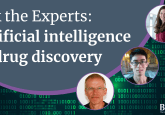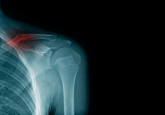An interview with Sandeep Reddy: using an evaluation framework to safely integrate AI into healthcare settings

In this interview with Sandeep Reddy from Deakin School of Medicine (Geelong, Australia), we consider the role of medical informatics when translating AI in healthcare. Sandeep discusses the main obstacles that prevent AI from being widely adopted by the healthcare community, and how these may be overcome with a recently developed evaluation framework assessing the safety and quality of an AI application.
What sparked your interest in medical informatics?
While I have always been interested in the intersection of technology and healthcare, my PhD formalized my interest in data analytics and autonomous learning systems. This interest led to a pursuit of further training in machine learning and healthcare IT. I trained in the latter topic because, as I quickly realized, AI could only operate in alignment with health IT infrastructure and that a medical informatician must be knowledgeable of various aspects of healthcare IT. I am now a certified health informatician and a Fellow with the Australasian Institute of Digital Health (Melbourne, Australia). I am also a member of HIMSS (IL, USA) and a recognized digital health expert by the World Health Organization.
What are the main challenges in applying AI techniques in healthcare systems and how can we overcome them?
At this stage, the main challenges are related to adoption, integration and governance. Adoption relates to the hesitancy of healthcare services, professionals and the patient community to accept AI as a support tool in clinical decision-making. Integration issues revolve around the third-party AI applications not aligning with clinical workflows and thus not providing necessary value to clinicians. Governance issues are broad and cover regulation, ethical, and medico-legal issues. While there is no one size fits all solution, a comprehensive evaluation process can address many of these challenges.
What were the main aims and take-home findings of your recent paper on an evaluation framework to guide the implementation of AI in healthcare settings?
As I discussed above, a comprehensive and continuous evaluation mechanism can assist with the greater adoption and usefulness of AI applications in healthcare. In line with the aforementioned translational issues, an international team of clinicians, researchers, data scientists and policymakers developed a comprehensive framework that not only can evaluate the utility of an AI application but also assess the safety and quality of the application. As with any good evaluation, the framework not only assesses but also provides learning for vendors, policymakers and healthcare administrators in addressing any identified issues. The other benefits of the framework are that it can be utilized at any stage of the AI application cycle: development, deployment and post-deployment. Since we published the framework, we have also validated the framework with over 100 COVID-related AI studies and are in the process of publishing the results.
Your research shows just how widely AI can be applied – from the use of AI in aiding radiologists to uncovering the origins of SARS-CoV-2. In your opinion, what does the future hold for the application of AI in healthcare?
My research reflects not only my varied interests but also the versatility of AI. The latter feature distinguishes AI from many other technologies and mirrors the diversity embedded in healthcare planning and delivery. I am optimistic about the role of AI in healthcare despite the current teething challenges. However, we all have a role in ensuring that AI application in healthcare is regulated, safe, explainable and high-quality. In the end, AI will, in most situations, function better as an adjunct to healthcare professionals rather than as a replacement technology.
Any closing comments?
The next few years will demonstrate greater AI adoption in various healthcare service delivery stages. However, the most significant benefit of the adoption will be in chronic disease treatment and management. I am excited to be involved in researching and developing AI applications in this critical area.
Interviewee profile:
I am a medical informatician with several roles, including as a digital health researcher and medical technology entrepreneur. I have a diverse experience of over two decades across multiple countries and organizations but all within the healthcare sector. Some milestones in this experience involve establishing various healthcare interventions and health education programs. In recent years, I have focused on digital health research and developing health IT applications, specifically on translational AI in healthcare. This focus has involved researching suitable pathways for healthcare services to adopt AI and developing applications to assist patients with disease self-management. I am also involved in educating healthcare professionals and students about the utility of AI in healthcare.
The opinions expressed in this interview are those of the author and do not necessarily reflect the views of Oncology Central or Future Science Group.





